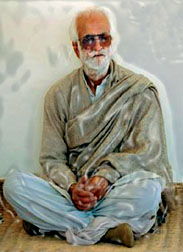|
observer |
|
|
|
|
|
OTHER LINKS |

|

|

|
Pakistani Chieftain had violent tactics
An urbane, English-speaking former interior minister, tribal chieftain Nawab Akbar Bugti led a decades-long violent campaign for increased benefits for his impoverished southwestern province, Baluchistan. Pakistani authorities accused Bugti, 79, of ordering attacks on vital government infrastructure to win more royalties for natural gas, oil and coal extracted from Pakistan's most impoverished region. The silver-haired Bugti was killed Saturday after Pakistani forces backed by attack helicopters assaulted his mountainous cave hide-out. He was the most prominent ethnic leader from fiercely independent Baluchistan, which borders Iran and Afghanistan. "It is fair to say that instead of dialogue he chose to go into the mountains and use arms to resolve a political situation," Pakistan's minister of state for information, Tariq Azeem Khan, said Sunday. Bugti was born on July 10, 1927, in the town of Barkan into one of Baluchistan's most prominent tribes, the Bugti clan, which numbers in the tens of thousands. A son of a tribal chief, Bugti was educated at the exclusive Aitchison College in the eastern city of Lahore and later held many positions in national and regional government. But his loud demands for greater rights for fellow ethnic Baluchis earned him many political opponents. Bugti briefly held the Pakistani interior and defense minister posts for several months each in 1957, said Amanullah Kanrani, a former senator with Bugti's Democratic Nation Party. Baluchistan's resourcesSoon after a bloodless coup, Bugti was jailed eight years for his political activities and released in 1969, said Kanrani. Bugti accused the central government of pillaging Baluchistan's natural resources while its residents lived in poverty. His tribal domain was just 35 miles from Pakistan's main gas field, and for years he received state revenues for the lease of property used for extracting gas. In 1973 he was briefly appointed Baluchistan's governor, but resigned after a few months after disagreeing with federal government policies.
The 1992 killing of his youngest son, Salal, by pro-government tribesmen saw him advocate armed struggle against authorities and move from Quetta to a base in Dera Bugti, about 250 miles to the east, Kanrani said. Government-Baluch violence flared in early 2005 after Pakistani forces deployed to Dera Bugti. Up to 70 people were reported killed during clashes in March. Hostilities escalated in December that year, when militants fired rockets that landed about 300 yards from President Gen. Pervez Musharraf while he was visiting the nearby town of Kohlu. Bugti went into hiding shortly afterward, taking refuge in the Kohlu mountain cave. The elderly rebel leader received numerous journalists, through whom he managed to keep spreading his pro-Baluch message. He also kept in touch by satellite phone with supporters and reporters. Kanrani said that since July, government helicopters and warplanes had been pounding the mountain region where Bugti was hiding. The Pakistani army said their interception of a satellite phone call led security forces to attack Bugti's hide-out last week. (New York Times) |

 The military put down a tribal rebellion the following year,
reportedly leaving about 3,000 dead. Bugti was elected the province's
chief minister in 1989, but resigned little more than a year later, soon
forming his Democratic Nation Party to politically advance the Baluch
cause.
The military put down a tribal rebellion the following year,
reportedly leaving about 3,000 dead. Bugti was elected the province's
chief minister in 1989, but resigned little more than a year later, soon
forming his Democratic Nation Party to politically advance the Baluch
cause. 







